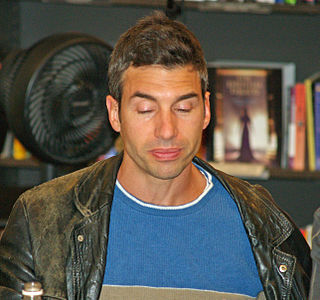A Quote by Bennett Miller
You can recognize almost immediately if the film you're watching is the product of some kind of a hive mind or the result of a personal vision and genuine collaborations. 'Manchester by the Sea' reminds us of the potential of the latter and, for that reason, is the kind of work that makes me, as a filmmaker, want to continue. It's inspiring.
Related Quotes
Philosophy, for Plato, is a kind of vision, the 'vision of truth'...Everyone who has done any kind of creative work has experienced, in a greater or less degree, the state of mind in which, after long labour, truth or beauty appears, or seems to appear, in a sudden glory - it may only be about some small matter, or it may be about the universe. I think that most of the best creative work, in art, in science, in literature, and in philosophy, has been a result of just such a moment.
I am very excited to work with people who have a strong vision of what they want. They're trying to tell a story, and they want to use me. I'm there to facilitate that. I really like that. I'm like, "Tell me where your frame is. Tell me what you want, what kind of story you want, and I will facilitate it." That's sort of my job, and it makes my work better when I'm working in that kind of a frame, and hopefully it's their work. It's incredibly collaborative, in the sense that you're working toward a common goal.
Well, the experience for me making a film is the most profound one. I really don’t have any business watching the movie so much. Maybe I could watch it for entertainment purposes, but you have so little input and control of the final product once you’re done that I feel like I just would rather leave it alone. It kind of leaves me in a place where every film I do, I’m kind of having to reinvent and figure out how to start again fresh, and hopefully not repeat myself.
Genuine recollections almost invariably explain oneself to oneself. Suppose, for example, that you feel an instinctive aversion to some particular kind of wine. Try as you will, you can find no reason for it. Suppose when you explore a previous incarnation, you remember you died by a poisoned administered in a wine of that kind, your aversion is explained by the proverb: 'A burnt child dreads the fire.'
Amanda [Bynes] and I are the same age so I grew up watching her and really looking up to her and for me, to see this path that's happening and to watch it, is kind of really affecting me in ways that I didn't think it would. It's weird to be in a situation where you can't help. I obviously don't know her at all but I want to bring her back and I want to make her happy and healthy for some reason and she's not there and we can't do anything to help so it kind of sucks. All we're doing is hurting it.
I applied [to film school] figuring, "I need to find some structure for myself. I need to find a way to figure out what kind of filmmaker I want to be." And that is what film school provides you with. It'll teach you the basics of how a production works and the technical side of how to put everything together, but you could also learn that by working on film sets.
When industry people see something different they don't know what to do with it, so filmmakers who make films about women, they kind of fall through the cracks. If a woman filmmaker makes film about war, like [Kathryn] Bigelow, they say "Okay, this is a war film, it has ninety percent men in it, we know what to do with it." But then she still gets attacked for not doing it properly. [...] But even though it bothers me I don't want to dwell on the sex and gender thing.





































